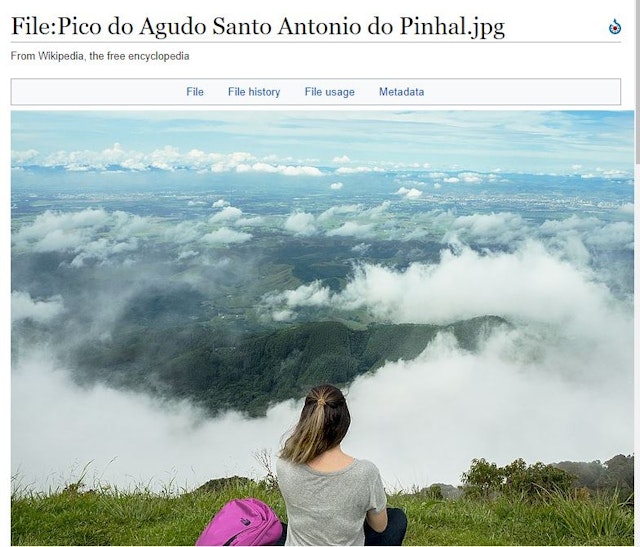The North Face axes 'unethical' Wikipedia product placement campaign by Leo Burnett
Outdoor apparel brand The North Face and ad agency Leo Burnett Tailor Made have been criticised for manipulating Wikipedia to feature product placement images on high-traffic tourism pages.
The brand wanted to gain greater exposure on Google Image Search by hacking the encyclopedia (before admins could ban the accounts responsible and replace the images).
North Face photographers were sent out into the wilds to capture original images of landmarks, complete with people wearing its products. Images of sites in Brazil, Peru, and Scotland were among those changed before the brand announced the stunt in a congratulatory video campaign.
The video (above) asked: “How can a brand be the first on Google without paying anything for it?”
it claimed its "biggest obstacle" was to pull off the manipulation “without attracting the attention of Wikipedia moderators".
Wikipedia launched a scathing dressing down of the "unethical... short-lived marketing stunt" as it looked to dissuade other brands from similar misconduct in pursuit of greater Google visibility.
Wikipedia accused the brand of "boasting" about the stunt and said it lied about collaborating with the digital encyclopedia, which uses volunteer moderators to ensure accuracy and neutrality on its pages.
It said: "What they did was akin to defacing public property," and added, "When The North Face exploits the trust you have in Wikipedia to sell you more clothes, you should be angry".
The North Face apologised for the stunt on Wednesday evening (29 May) and said it had axed the work.
It said: “We believe deeply in Wikipedia’s mission and apologize for engaging in activity inconsistent with those principles. Effective immediately, we have ended the campaign and moving forward, we’ll commit to ensuring that our teams and vendors are better trained on the site policies.
Leo Burnett Tailor Made, the Brazillian arm of the ad shop, issued a statement: "Leo Burnett Tailor Made found a unique way to contribute photography of adventure destinations to their respective Wikipedia articles while achieving the goal of elevating those images in search rankings. We’re always looking for creative ways to meet consumers where they are.
"We’ve since learned that this effort worked counter to Wikipedia’s community guidelines. Understanding the issue, we ended the campaign. Our team has further accepted an invitation by Wikipedia to learn more about the platform and their work to share unbiased, fact-based knowledge. We look forward to working with Wikipedia to engage with them, and with respect to their network of volunteer editors, better in the future."
The product placements were typically subtle. The North Face apparel cropped up in shots showing vast landscapes (like below). You can see all of the deleted images from the campaign here.

The Drum has previously explored how the manipulation of Wikipedia factors into information warfare and propaganda efforts.
Wikipedia is the fifth most visited site in the worth and boasts 48m articles and is available in 300 languages. There are only 1,200 voluntary gatekeepers protecting the integrity of its English-language pages. It is their job to ensure neutrality and accuracy on all pages. They tend to prioritise high-traffic pages and often find themselves neutralising corporate and state edits in particular.
John Lubbock, communications coordinator of the UK chapter of Wikimedia told The Drum that it is fairly difficult to manipulate the site for any lasting period of time.
He said: “There are eagle-eyed editors who are interested in pages about the human rights breaches of a dictatorships. It is reasonably hard to bias any page and any agency offering that service is running a scam. They can’t guarantee that they won’t get found out or have it changed back."

